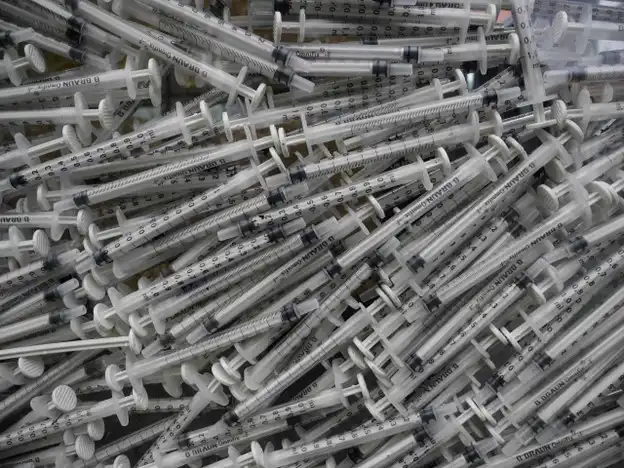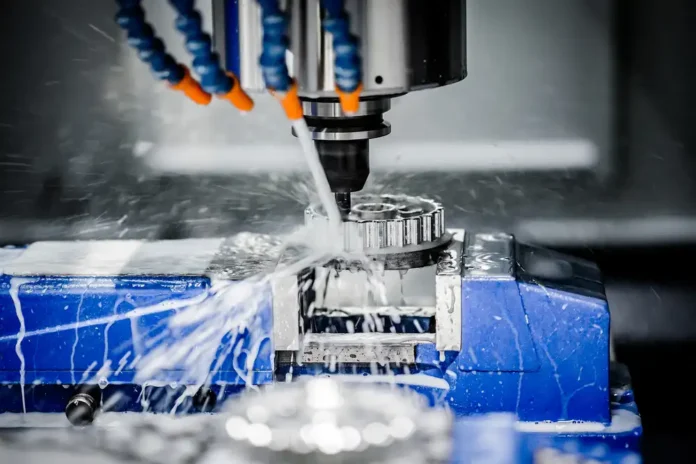Within the dynamic field of medical research, technology is a critical tool for expanding the realm of possibility. The field has been greatly influenced by technical marvels like Computer Numerical Control (CNC) machining. This piece explores the background, development, and significant contribution that CNC machining makes to the field of health science. We’ll look at how it might be used to make personalized lab equipment, support tissue engineering, advance scientific research, and improve medication delivery systems’ accuracy.
CNC Machining’s Role in Medical Research
Given its precision and versatility, CNC machining first gained traction in the automotive and aerospace industries. A leading area of research in medicine has been CNC machining since CAD and CAM technologies were introduced.

Research institutions produce an array of intricate parts, such as microfluidic instruments and custom fittings, using CNC machining.
As technology developed, so did CNC machining’s capabilities. The manufacturing of complex medical components was transformed by the switch from manual to computer-controlled machining. Today’s major participants are online CNC services, which provide researchers and medical professionals with a smooth platform to access precise machining solutions.
Reproducibility and accuracy are critical in medical research. Unmatched accuracy in component manufacturing is ensured by CNC machining, producing consistent and repeatable outcomes. This degree of accuracy is especially important for investigations where consistency is important since it establishes the basis for the dependability of research findings.
Customized Lab Equipment and Prototypes
When it comes to creating specialized lab equipment for medical studies, CNC machining has become essential. Research institutions produce an array of intricate parts, such as microfluidic instruments and custom fittings, using CNC machining.
Microfluidic devices, for instance, are essential for studying biological processes that take place at a tiny level. CNC machining is a useful technique for producing these devices, which often need intricate channels and forms. Researchers may now easily iterate and improve their experimental setups thanks to rapid prototyping.
There are more benefits to working with a CNC machining service provider like RapidDirect. These services include quick turnaround times, design optimization, and material selection knowledge. Leveraging CNC specialists to assist researchers in realizing their ideas will set them up to zero in on the technical parts of their work.
Pushing Boundaries and Enhancing Healthcare
CNC machining benefits biomedical research in ways that extend beyond producing lab apparatus. It actively contributes to pushing the limits of medical science’s capabilities.CNC machining is mainly employed in the fabrication of high-precision components for cutting-edge imaging tools in industries such as medical imaging. This promotes precise patient diagnosis and creates fresh possibilities for cutting-edge medical interventions.
These developments have significant effects on patient outcomes and healthcare. Accurate diagnosis and treatment methods lead to more focused interventions, reduced risks, and enhanced patient care overall. Experts in medicine and CNC machining remain to be the primary forces behind progress in the medical field.
Tissue Engineering and Regenerative Medicine
The potential of the tissue engineering field and regenerative medicine—two advanced areas of healthcare—depends on CNC machining services. The manufacture of scaffolds and other tissue-regenerative constructions necessitates a degree of precision that is not achievable with traditional manufacturing methods.
CNC machining is particularly good at creating complicated structures that resemble biological tissues. The creation of scaffolds that promote tissue regeneration and cell proliferation requires this level of precision. CNC-machined components offer the required structural integrity and biocompatibility for a variety of applications, including organ scaffolding and bone implants.
Working together with CNC machining service providers enables tissue engineering researchers to experiment with new materials and designs. Each experiment’s unique requirements are met by the manufactured structures thanks to the quick iteration and customization of componentry. With the rapidly evolving field of regenerative medicine, flexibility is essential.
Precision for Drug Delivery Systems
The creation of precise microstructures for drug delivery systems will significantly impact how effective treatment is. Complex components, such as microneedles for transdermal medication delivery and micro-reservoirs for controlled release, can be manufactured precisely and precisely thanks to CNC machining.
CNC-machined microstructures have an effect that goes beyond accuracy. It has a direct impact on medication delivery’s effectiveness and safety. Medication can be released under regulated conditions thanks to customized designs, which maximize therapeutic benefits and reduce negative effects. This degree of accuracy has the potential to revolutionize medicine administration, enhancing treatment results and patient compliance.
Conclusion
The use of CNC machining in medical research has revolutionized the area and opened up new avenues for investigation. It has a significant impact on the advancement of health science as evidenced by the development of customized lab equipment, contributions to biomedical research discoveries, support for tissue engineering, and precision in drug delivery systems.
Working together with CNC machining services and medical experts will probably result in even more creative solutions as technology develops. The combination of precision engineering and medical research has the potential to open up new avenues, improve patient outcomes, and push the envelope of what is practical in the field of health science.


